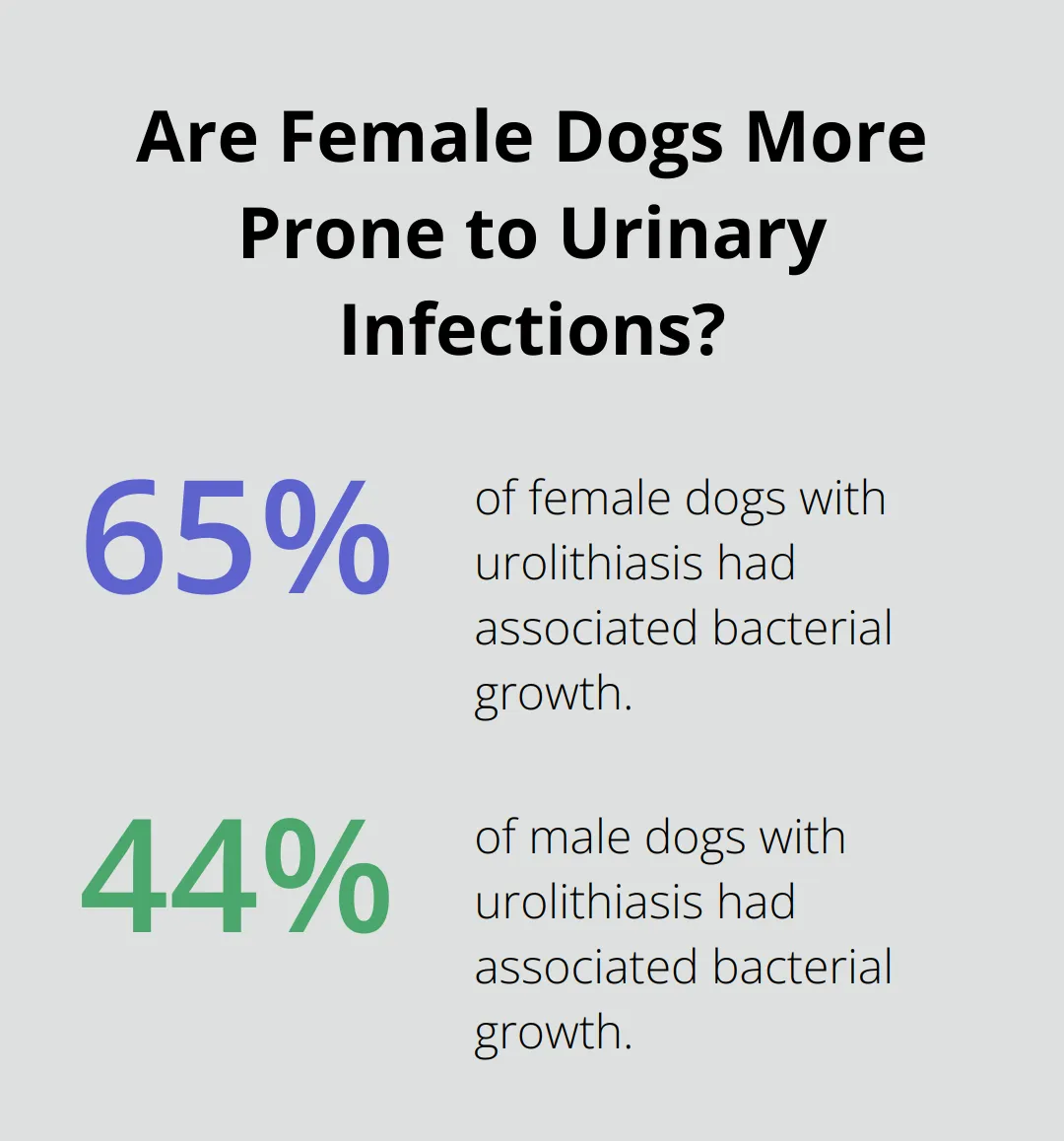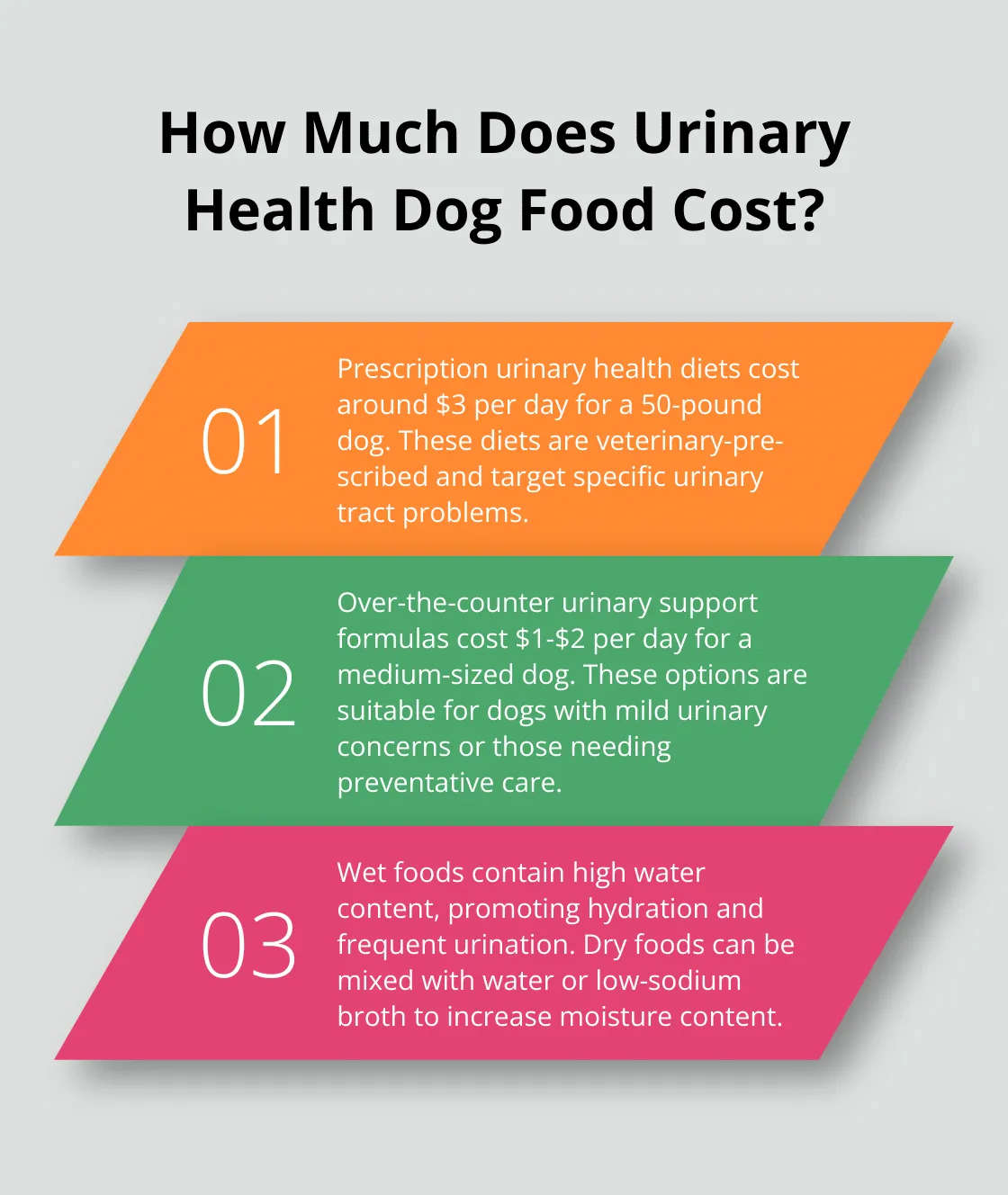Maintaining your dog’s urinary health is crucial for their overall well-being, and choosing the right dog food for urinary health can prevent common issues like infections and stones. At DogingtonPost, we prioritize nutrition that supports your canine companion’s urinary tract. Whether your dog is prone to urinary tract infections (UTIs) or you’re seeking preventive care, this guide covers causes, key ingredients, and top food options backed by veterinary insights.
Urinary problems are widespread among dogs, affecting quality of life if unmanaged. Factors like diet, breed, and age play key roles. By focusing on balanced nutrition, you can promote a healthy urinary environment. For personalized advice, consider consulting a holistic vet who integrates natural approaches with science-based care.
What Causes Urinary Issues in Dogs?
Urinary issues in dogs range from mild discomfort to serious blockages. A study in the American Journal of Veterinary Research linked urolithiasis (urinary stones) to bacterial growth in 65% of female dogs and 44% of males, highlighting the prevalence beyond just UTIs.
Common Root Causes
Genetics, age, and breed predisposition contribute significantly. Dalmatians and Bulldogs, for instance, face higher risks due to metabolic quirks that alter urine composition. Urine pH imbalances—ideally between 6 and 7.5, per veterinary guidelines—can foster crystal formation, leading to stones or infections. Untreated, these may escalate to emergencies like blockages.
Diet exacerbates many cases. High levels of magnesium or phosphorus promote stone development, while low moisture intake concentrates urine, inviting bacteria. Protein matters too: excess low-quality sources boost urea, straining kidneys and bladder. High-quality, moderate protein supports health without overload.
 Infographic: Are Female Dogs More Prone to Urinary Infections? – dog food for urinary health
Infographic: Are Female Dogs More Prone to Urinary Infections? – dog food for urinary health
Key nutrients like omega-3 fatty acids reduce inflammation, antioxidants (vitamins C and E) fight oxidative stress, cranberry extract prevents bacterial adhesion, and glucosamine bolsters bladder lining. Always pair diet with vet check-ups—urinalysis detects issues early.
Regular monitoring prevents escalation. Breeds with vulnerabilities benefit from tailored nutrition, emphasizing why dog food for urinary health is a proactive choice.
What Ingredients Support Canine Urinary Health?
Selecting dog food for urinary health hinges on targeted ingredients that balance minerals, promote hydration, and reduce inflammation.
Prioritizing Protein and Minerals
Opt for whole proteins like chicken, turkey, lamb, or fish as top ingredients—these deliver amino acids efficiently without urinary strain. Control minerals precisely: phosphorus at 0.2-0.7%, magnesium under 0.1%, and calcium at 0.5-0.8% (dry matter basis) to deter stones like calcium oxalate.
Omega-3 sources (fish oil, flaxseed) soothe the tract, while antioxidants from blueberries, cranberries, and sweet potatoes combat stress. These align with veterinary recommendations for sustained urinary wellness.
Hydration and Specialized Additives
Wet foods shine with 75% moisture versus kibble’s 10%, diluting urine and flushing systems. Enhance dry food by adding water or low-sodium broth. Cranberry extract, validated in studies, blocks bacterial attachment; glucosamine protects lining integrity.
For older dogs facing multiple issues, these ingredients complement broader care, such as the best treatment for older dogs with arthritis, as age often overlaps with urinary vulnerabilities.
 Infographic: How Wet Is Your Dog
Infographic: How Wet Is Your Dog
Balanced formulas outperform single ingredients. Transition slowly over 7-10 days to monitor tolerance.
Best Dog Food Options for Urinary Health
Tailored diets outperform generics for urinary support, divided into prescription and over-the-counter.
Prescription vs. Over-the-Counter Choices
Vet-prescribed foods address acute issues with fiber for satiety and pH control, costing around $3 daily for a 50-pound dog. For prevention or mild cases, OTC options from Blue Buffalo or Royal Canin incorporate cranberries and minerals at $1-2 daily—accessible without scripts.
Wet varieties excel in hydration studies, boosting intake and dilution. Dry kibble suits dental health; verify analysis for safe mineral ranges and mix with wet for balance.
 Infographic: How Much Does Urinary Health Dog Food Cost?
Infographic: How Much Does Urinary Health Dog Food Cost?
If travel or illness arises, services like emergency dog boarding near me ensure continuity while you source ideal food.
Vet guidance is non-negotiable—customize based on urinalysis.
Final Thoughts
The best dog food for urinary health features quality proteins, mineral control, omega-3s, and moisture to safeguard your dog’s tract. Combine with regular vet visits for optimal results.
Monitor urination, intake, and vitality post-switch. For hands-off periods, a professional dog sitter maintains routines.
 Infographic: How to Support Your Dog
Infographic: How to Support Your Dog
Partner with your vet for long-term success—your dog’s comfort depends on it.
References
- American Journal of Veterinary Research: Urolithiasis Study
- Today’s Veterinary Practice: Urine pH Guidelines
- AVMA Journals: Cranberry Extract Research
- PMC: Hydration Study
